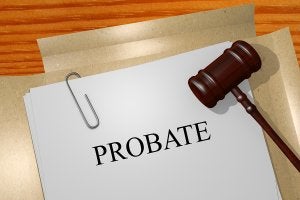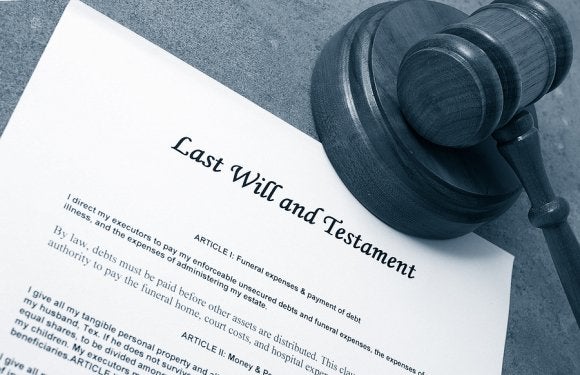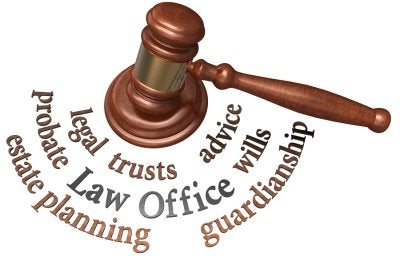-
What to Know About a Probate Bond
When an individual goes to a probate lawyer to have a will drafted, the document will almost certainly waive the requirement of a probate bond . But in some cases, it is a requirement to obtain a probate bond in The Woodlands unless your probate lawyer successfully argues against it. When a probate bond is issued, its purpose is to offer protection to the heirs and creditors of the decedent specifically from the negligent or intentionally wrongful acts of the executor or administrator.
For example, an executor might decide to retain all of the funds in an estate for him- or herself instead of distributing them among the creditors and other heirs. The existence of a probate bond allows the creditors and heirs to recover the amounts they are entitled to despite this act of malfeasance. Although a probate bond seems to be desirable, in most situations it actually creates more problems than it solves. This is because obtaining a substantial probate bond can be costly and not everyone will be qualified to do so. The funds from the estate cannot be used to pay for the probate bond simply because these funds are inaccessible until the bond is already obtained.

-
Meeting with Your Probate Attorney
The probate process in The Woodlands is complex. It’s best to hire a probate lawyer to handle these complicated matters for your family. Taking a few minutes to prepare will help you get the most out of your meeting with the probate lawyer . For example, consider your answers to the following questions discussed in this featured video.
This legal professional suggests that your probate lawyer will ask you exactly which services you need him or her to perform. A probate attorney can prepare wills and living wills, revoke previous wills or trusts, and handle contested wills. You should also consider what your role in this matter is. For example, are you the executor or an heir? It’s also a good idea to prepare a list of questions you want to ask the attorney during your meeting.
-
What Probate Attorneys Do
Your family may want to speak with a probate attorney in The Woodlands after the passing of a loved one . A probate lawyer handles the administrative process of settling the decedent’s affairs. It’s commonly thought that probate is a lengthy and arduous process, but in fact, probate lawyers commonly succeed int making the process relatively easy for the surviving family members.
You can watch this video to hear a little more about what a probate attorney can do for your family. This legal professional explains that the probate lawyer may pay the decedent’s debts and taxes from his or her estate, take an inventory of the assets, and oversee the distribution of assets to the beneficiaries. Probate attorneys can also handle disputes among heirs regarding inherited property.
-
Potential Probate Problems
After your passing, your assets will be distributed through a process called probate. A probate lawyer can file the necessary paperwork and make court appearances for your family. If you had your probate lawyer create a will and trust for your estate in Conroe, TX, then the probate process is fairly straightforward. Provided that your will is legally valid, your assets should be efficiently distributed in accordance with your wishes.
As the expert in this video explains, wills and trusts can help prevent potential probate problems. Without a valid will, your surviving family members may argue over your assets, which can delay probate, increase costs, and adversely affect familial relationships.
-
Answers to Common Questions about Wills and Probate
 Wills and probate are important aspects of the legal process involved in wrapping up a deceased person’s estate. Because going through and untangling an estate can be confusing, it helps to retain a probate lawyer near The Woodlands to walk you through the process. Having a probate lawyer handle the case can help you avoid unnecessary delays and minimize conflict. These answers to common questions about probate will help you understand what to expect.
Wills and probate are important aspects of the legal process involved in wrapping up a deceased person’s estate. Because going through and untangling an estate can be confusing, it helps to retain a probate lawyer near The Woodlands to walk you through the process. Having a probate lawyer handle the case can help you avoid unnecessary delays and minimize conflict. These answers to common questions about probate will help you understand what to expect.How Do I Know If Probate Is Necessary?
Not all estates are required to go through probate. For instance, community property can transfer to a surviving spouse and life insurance proceeds can be paid to the specified beneficiary without probate in Texas. Small estates, in which there is no will and the value of the estate is less than $50,000, can often skip probate court, so long the beneficiaries agree on the distribution of property and sign an affidavit to that effect. Even if you believe you do not need probate court, it is still advisable to have a probate lawyer review your case to ensure the estate is being handled appropriately.What Are the Different Types of Probate?
The most common type of probate in Texas involves the “independent administration” of the estate. During this type of probate, an executor who is either named in the will (or unanimously nominated by all beneficiaries) supervises the process of handling the affairs of the estate. Once approved as an independent administrator by the Court, he or she can act independently to pay outstanding debts, sell property attached to the estate, and distribute assets to beneficiaries without obtaining court approval for each step. The second kind of probate is the often maligned “dependent administration.” It is less common because it requires the court to become more involved in the probate process by approving actions by the executor each step of the way.What Role Does the Will Play In The Probate Process?
An uncontested will can make probate simple if it properly provides direction for estate administration including authorizing an independent administration. If there is no will, or if the authenticity of the will is challenged, or whenever the beneficiaries dispute the terms of the will, then a probate lawyer can provide both legal direction as well as representation in probate court. -
Understanding Probate Litigation
Probate is the process of settling a deceased person’s will and requires the services of a probate lawyer in the Woodlands. A probate lawyer can ensure the process is as smooth and efficient as possible, even in the event that a will is contested.
Probate litigation involves resolving a will contest. A probate lawyer may authenticate a will if a person believes that it was improperly drafted or was created under suspicious circumstances. A lawyer is also necessary where the heirs are disputing the terms of a loved one’s will and need protection of their legal rights and claims to property or possessions. A probate lawyer can also help determine the rightful heirs in the absence of a will. If someone passes away without drafting a will, your attorney will appear in probate court to assisting in determining what your proper entitlement is under law. Of course, the best way to avoid probate litigation is to hire a will lawyer to draft a will while you can still make your wishes known.

-
Instances When Probate Litigation May Be Required
After a death, matters pertaining to the decedent’s debts and assets are resolved through the probate process. In many cases, probate is straightforward and is easily settled. However, sometimes probate litigation may be necessary to resolve claims. It’s always a good idea to retain the services of a lawyer when dealing with probate court in Conroe, TX. A probate lawyer can help you in the event that probate litigation is needed, such as if you believe it necessary to authenticate a will. Your lawyer might contest a will if you believe that the document was not drafted properly or the signature may not be valid.
It’s not uncommon for the terms of a decedent’s will to become a source of disagreement among the heirs. You’ll need the services of a skilled probate attorney in the event that you need to dispute the will or if another heir has disputed the will. Another reason why probate litigation may be necessary is if a loved one dies intestate (without a last will and testament). In these cases, an attorney can facilitate the process of determining the rightful heirs.

-
Probate in Texas: Understanding the Process
Probate is the process of recognizing a death and validating a will for the purpose of administering the decedent’s estate. A decedent’s estate will go through probate regardless of whether an individual had a legal will or died intestate (without a will). After a loved one passes, hiring a probate lawyer can be immensely helpful. A probate attorney in The Woodlands can ensure that the requirements of the Texas Probate Code are met and that probate proceeds as efficiently as possible. The lawyer can also help the family understand what to expect from each step of the probate process.

Waiting Period
The first step your lawyer will take in most probate cases is to file the application and the original of the will at the courthouse. Then, there is a mandatory waiting period, which begins once the application is filed.Probate Hearing
After the waiting period, the court may schedule a probate hearing or your attorney may schedule it. Probate hearings are usually held in the courtroom, however, sometimes they take place in the judge’s office. At the probate hearing, the judge will recognize the death of the decedent, determine that the court has jurisdiction, determine that the executor is qualified, and recognize the validity of the will . The lawyer states certain facts about the decedent to a witness, who is then required to confirm the truth of the facts. Thereafter, the judge may issue an order that admits the will to probate.Estate Administration
After the probate hearing, the executor begins administering the estate. He or she must sign an Oath, which is a legal document verifying the executor’s intent to fulfill all necessary duties required by law and the will. Next, the executor usually orders Letters Testamentary. These “Letters” provide the executor with the authority necessary to administer the estate, such as the power to close bank accounts and sell property. The executor must also publicize information about the estate to potential creditors, provide each beneficiary with a copy of the will, and file various documents with the court. These documents typically include an inventory of probate assets, the decedent’s final income tax return, and a document that confirms the publication of notice to the creditors. Finally, the executor will resolve debts and distribute assets. -
Worms Escaping The Can – The Gay Marriage Ruling and Probate
The Supreme Court’s recent Obergefell ruling stated that two individuals of the same sex have a constitutional right to marry, and that ruling calls forth some interesting questions. For example, in law school we learned that, when the Supreme Court decides for the first time that a person has a constitutional right to engage in some activity, that right is a right which has always existed, and the Court is only then annoucing its intention to safeguard it.
If this is indeed so, then there are many states, including Texas, which have not previously recognized same sex marriage. This is important because, in those states, when a partner in a same sex relationship dies, the surviving partner, absent a will, does not inherit anything of the estate of his or her deceased partner. In such cases, it is the children of the deceased partner who generally inherit the estate.
Now, however, we find out that those individuals who did not have the ability to get married because such was not recognized by their state (or previously were married in a foreign state that did recognize same sex marriage), they should have been allowed to inherit the estate as a surviving spouse.
I wonder how many cases will need to be reopened to redirect inheritances towards spouses of gay decedents from that decedent’s children to the unconstitutionally-denied spouse? Litigation aplenty is in store.
-
When Does Probate Take Place?
When an individual dies, the probate process begins after the executor files the necessary application in probate court. Sometimes, the surviving family members will hire a lawyer to represent them in the probate court in The Woodlands. The executor then proves the validity of the will before the Court. In such cases, it usually takes only a few months to complete the probate process. However, some cases may take longer, particularly if a probate attorney disputes the authenticity of the will or disputes one or more terms of the will.
You can hear more about the probate process by watching this video or consulting your lawyer. This expert explains why probate is necessary and discusses the role of the executor. He also explains which types of assets do not need to go through the probate process.
RECENT POSTS
categories
- Uncategorized
- Estate Planning
- Probate
- Family Law
- Drafting a Will
- Divorce Lawyer
- Texas Family Law
- Divorce
- Real Estate
- Probate Court
- Child Custody
- Andrew J. Bolton
- Esq.
- Adoption
- Law Office of Andrew J. Bolton
- Wills
- Executor
- Infographic
- Guardianship
- Trusts
- Contested Divorce
- Child Support
- Attorney
- Living Wills
- Contested Will
- Prenuptial
- Probate Bond
- Heir Apparent
- Legacy Contact
- Living Trusts
- legal guardian
- Legal Disputes
- property rules
- Common Law
- Stocks
- Estate Tax
